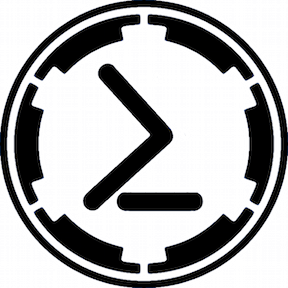Empire: PowerShell Post-Exploitation Framework

Empire is a post-exploitation framework that combines the power of Powershell and Python to create a framework which can be used to deploy post-exploitation modules such as keyloggers or Mimikatz on the target systems. This Framework uses the power of cryptography to secure communications while also offering a flexible architecture.

Empire: PowerShell & Python3 Post-Exploitation Framework
After entering the main menu, the user will see the number of active agents, listeners and loaded modules. The first step normally is to set-up a local listener through the listener management menu. After this, the user can choose to set up various stagers including dlls, macros, one-liners and more. The user can also choose to perform commands through agents and check which infiltrated systems are online. Lastly, the user has the option to execute modules on different agents
Features:
- includes a pure-PowerShell 2.0 Windows agent
- Compatible with Python 3.x Linux/OS X agents
- Deploy Post-Exploitation modules from keyloggers to Mimikatz.
- Designed in a way to avoid detection
Supported Platforms:
- Linux
- Windows
Requirements:
- Powershell
- Python 3+
Install Empire
Linux
Clone the GitHub repo:
$ git clone https://github.com/BC-SECURITY/Empire.git
Navigate to the working directory and install:
$ cd Empire
$ sudo ./setup/install.sh
Kali Linux
Run the following command:
$ apt install powershell-empire
Docker
Using a pre-built docker container:
$ docker pull bcsecurity/empire:{version}
$ docker run -it bcsecurity/empire:{version}
# with persistent storage
$ docker pull bcsecurity/empire:{version}
$ docker create -v /empire --name data bcsecurity/empire:{version}
$ docker run -it --volumes-from data bcsecurity/empire:{version}
# if you prefer to be dropped into bash instead of directly into empire
$ docker run -it --volumes-from data bcsecurity/empire:{version} /bin/bash
Usage
Enter the following commands:
$ cd Empire
$ ./empire
Different switches within Empire
Use -h to list all available options:
$./empire -h usage: empire [-h] [--debug [DEBUG]] [-s [STAGER]] [-o [STAGER_OPTIONS [STAGER_OPTIONS ...]]] [-l [LISTENER]] [-v] [--rest] [--restport [RESTPORT]] [--headless] [--username [USERNAME]] [--password [PASSWORD]] optional arguments: -h, --help show this help message and exit --debug [DEBUG] Debug level for output (default of 1). -s [STAGER], --stager [STAGER] Specify a stager to generate. Lists all stagers if none is specified. -o [STAGER_OPTIONS [STAGER_OPTIONS ...]], --stager-options [STAGER_OPTIONS [STAGER_OPTIONS ...]] Supply options to set for a stager in OPTION=VALUE format. Lists options if nothing is specified. -l [LISTENER], --listener [LISTENER] Display listener options. Displays all listeners if nothing is specified. -v, --version Display current Empire version. --rest Run the Empire RESTful API. --restport [RESTPORT] Port to run the Empire RESTful API on. --headless Run Empire and the RESTful API headless without the usual interface. --username [USERNAME] Start the RESTful API with the specified username instead of pulling from empire.db --password [PASSWORD] Start the RESTful API with the specified password instead of pulling from empire.db


![DNS Rebinding with Singularity [Usage Example] DNS Rebinding with Singularity [Usage Example]](https://cdn.cyberpunk.rs/wp-content/uploads/2018/12/singularity_usageexample_bg-500x275.jpg)

![Post-exploitation Agent – SILENTTRINITY [Python, IronPython, C#/.NET] Post-exploitation Agent – SILENTTRINITY [Python, IronPython, C#/.NET]](https://cdn.cyberpunk.rs/wp-content/uploads/2018/10/silent_trinity_bg-500x275.jpg)